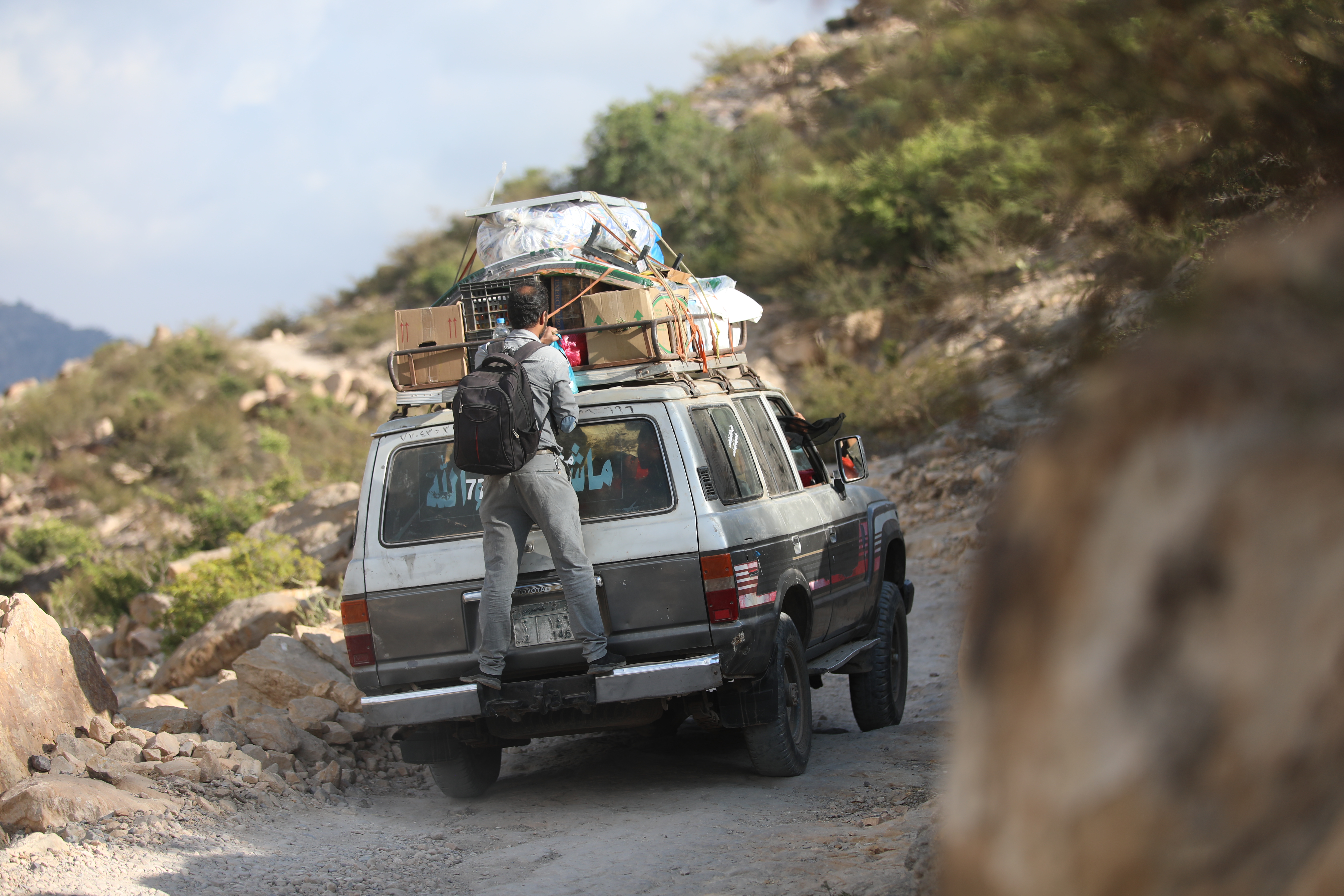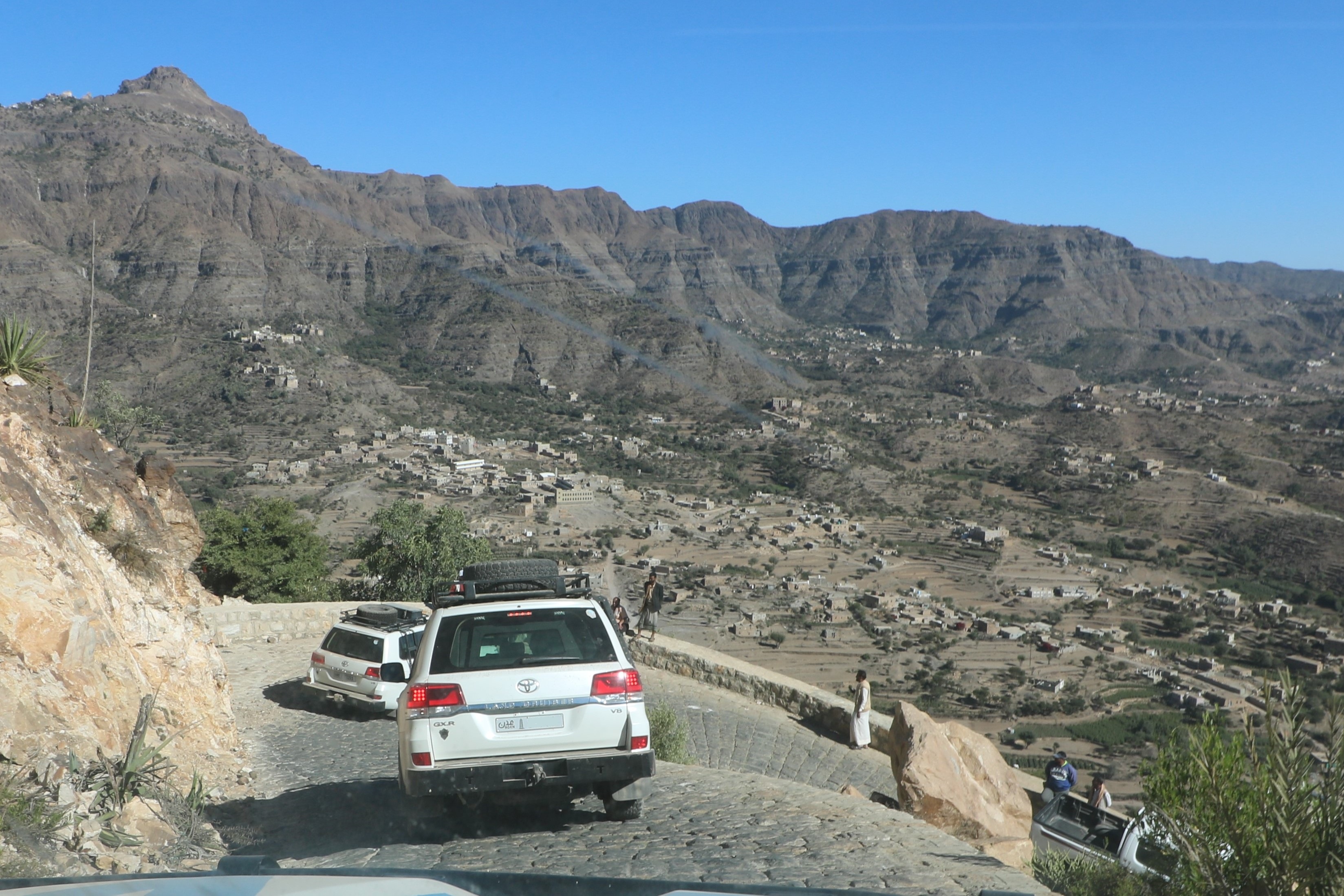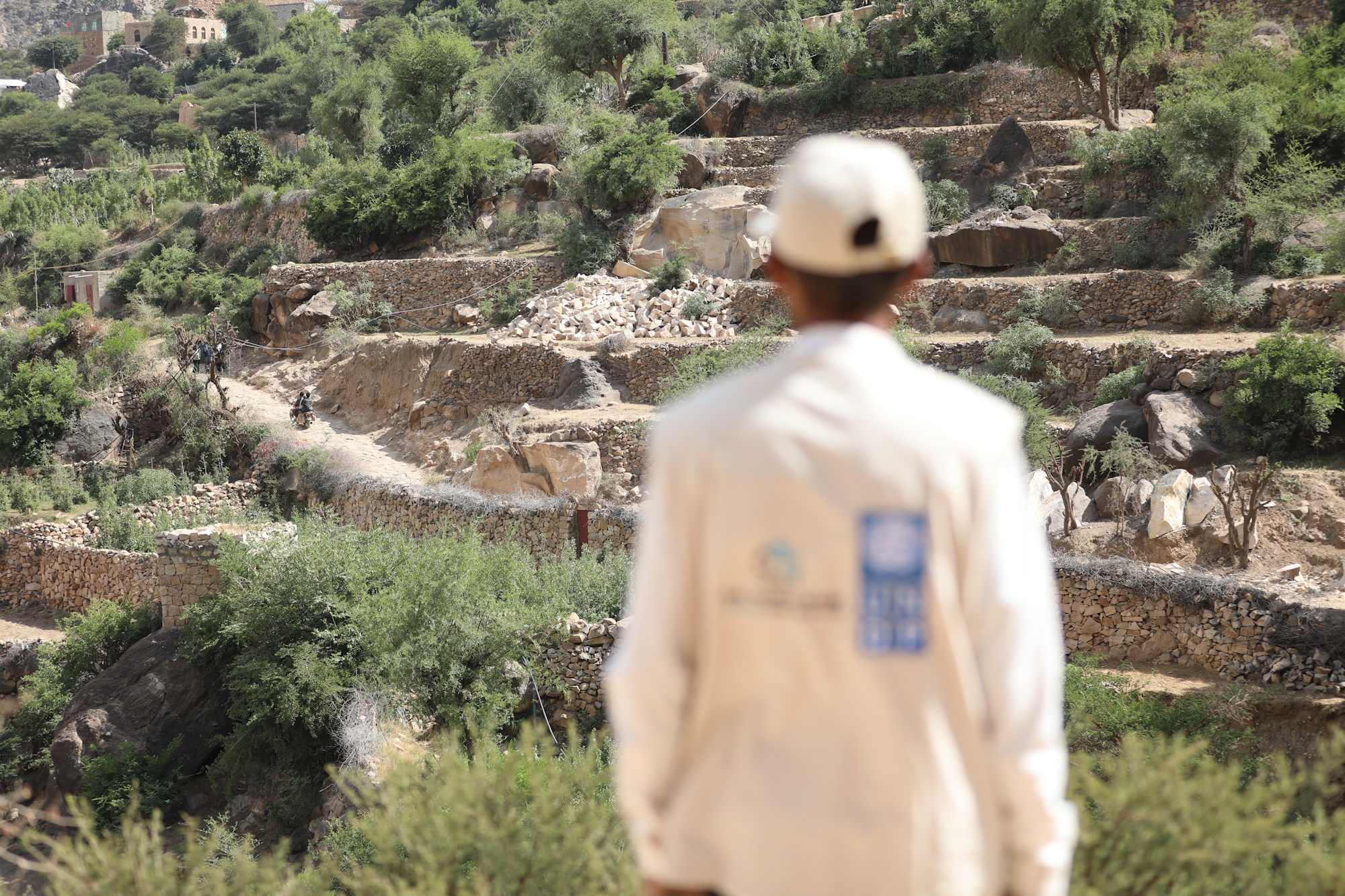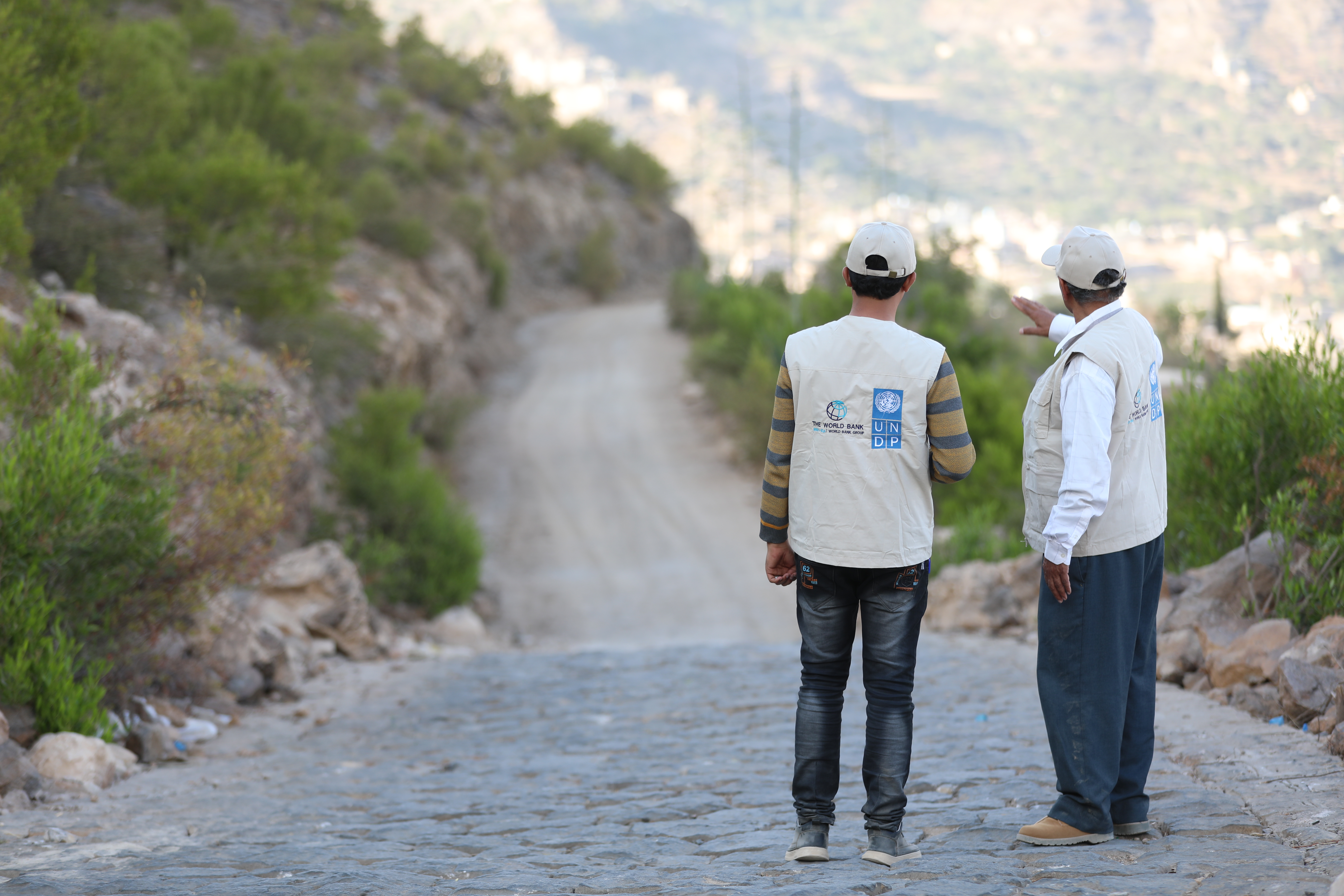Paving Yemen’s roads: supporting farmers, increasing food resilience
August 31, 2023

Only four-wheelers could transvers Eilyafa’s rough road before it was completed. Al Shamayatayn, Taiz
Farmers’ productivity relies upon access to agricultural supplies and machinery, as well as safe and proper access to markets to sell their produce. Unfortunately, eight years of protracted conflict in Yemen has left many farmers without this access, resulting in millions of Yemenis becoming severely food insecure.
Production hurdles and obstacles facing farmers – combined with the devastating effects of climate change and a heavy reliance upon food imports – has meant that Yemen is now one of the most food insecure countries in the world. The situation has been made worse by a lack of paved roads across the country and difficulty for rural farmers to access markets.
Around 30,000 people live along the mountainous Eilyafa Road that passes through the community of Al-Madhahij in Taiz. The road is unpaved and has exacerbated hardships on the local population, denying them access to everything from education to healthcare – even food became difficult to get and costly.
Locals began to look for solutions.
They found solutions in sharing the costs of renting expensive off-road vehicles that could traverse the difficult roads between the villages. A temporarily solution was found to what used to be inaccessible to so many – even during the rainy season when access was extremely difficult, if not impossible. Food and supplies were now possible to be delivered to the rural communities. But it was still difficult for farmers to bring in much-needed equipment and many struggled to sell what they had grown.

FSRRP paved three of the most difficult sections of Eilyafa’s road to improve farmers’ access to suppliers and markets, Al Shamayatayn, Taiz.
A local villager, Sa’eed Sharaf, explains that, “This road is used by everyone in surrounding villages, and we all struggled.” He goes on to say that, “The high cost of food transport forced people to share the cost of renting a four-wheeler to deliver goods. And those who ran out of food before the next delivery would have to go on a two-hour journey to reach the nearest market.”
Joining a road through community participation
To help solve these issues, the United Nations Development Programme (UNDP), the World Bank, and the Public Works Project (PWP) have partnered together on the Yemen Food Security Response and Resilience Project (FSRRP) to pave the Eilyafa Road in hopes of helping create food security in the small villages around it. The project allows both villagers and farmers to gain access to freedom of movement – allowing them to go to the market, move their goods, send their children to school, and have opportunities to earn income to better care for their families.

Eilyafa Road is a lifeline for many farmers in the area of Al Shamayatayn, Taiz.
In response to the community priorities, three particularly difficult sections of Eilyafa Road were paved. Paving the very difficult 510 meters of the four kilometer road has made a huge difference.
“It helped connect all the paved parts into one major road with smaller roads forking from it,” explains engineer Salah Saif, the Project Officer.
The project employed locals through a cash-for-work programme that allows people to not only earn daily wages but to also learn new skills they can carry into the labour market in the future.
"130 men and five women from the local community gained new skills and expertise by participating in the road paving project,” explains Saif.

Eilyafa Road is a lifeline for many farmers in the area of Al Shamayatayn, Taiz.
A new reality
So much has now changed for the 17 villages along the Eilyafa Road.
Saeed Salam, the Development Committee Coordinator in the Al-Mathahej sub-district, stresses the impact the newly paved road has had on farmers.
“Our local farmers can now rent modern tilling machines, easily access seeds and fertilisers, and transport their crops to sell at local markets,” he indicates. The road will have tremendous impact on the village farmers and their ability to produce larger crop yields as well as transporting their produce to market, improving the food security in the area.
He goes on to explain that “The benefits of this project have gone beyond just giving farmers access to local markets; it has revitalized the agricultural sector and contributed to enhanced food security in the communities.”
In addition, instead of taking long and rough roads, people can now safely drive on Eilyafa Road, saving them time and money. Instead of hiring a four-wheeler or spending three to four hours to reach the city centre, people can now reach it in less than 20 minutes. Having easier and cheaper access to essential services means saving more money, that which can be spent on improving households’ food security.
“The new road has made a big impact in local communities,” says Sa’eed Salam. The benefits extend from transporting food and goods to giving people access to education and healthcare. “
It is seen as one of the most significant projects to have been implemented in the area because it has truly transformed people’s lives.”
***
Funded by the World Bank’s International Development Association (IDA), the Yemen Food Security Response and Resilience Project (FSRRP) is implemented by the United Nations Development Programme (UNDP), the Food and Agricultural Organization of the United Nations (FAO), the World Food Programme, and the International Committee of the Red Cross. UNDP’s US$ 64 million component of FSRRP improves agricultural production infrastructure and builds climate resilience and is implemented in partnership with the Social Fund for Development (SFD), and the Public Works Project (PWP).

 Locations
Locations


